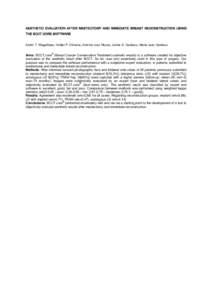<--- Back to Details
| First Page | Document Content | |
|---|---|---|
 Date: 2012-08-01 08:47:39Breast surgery Breast reconstruction Mastectomy Breast Implant Autotransplantation Breast augmentation Breast implant |
Add to Reading List |
| First Page | Document Content | |
|---|---|---|
 Date: 2012-08-01 08:47:39Breast surgery Breast reconstruction Mastectomy Breast Implant Autotransplantation Breast augmentation Breast implant |
Add to Reading List |